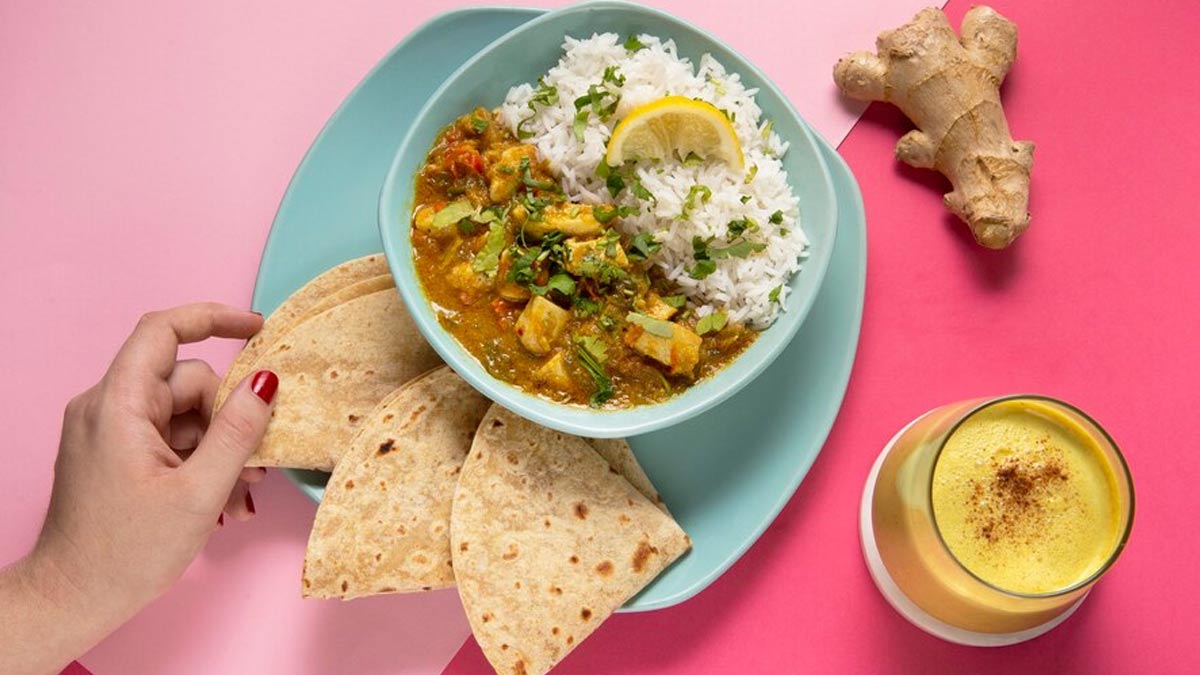
In India, it is a common tradition to have roti (Indian bread) and rice together in a single meal. This combination not only satisfies the taste buds but also provides a feeling of completeness to the meal. However, when it comes to weight loss, there is often a recommendation to reduce the quantity of rice and the number of rotis consumed. In this article, we will explore the nutritional value of roti and rice, the effects of combining them, and more.
Table of Content:-
Nutritional Value Of Roti And Rice
Roti, made from whole wheat flour, contains complex carbohydrates, dietary fibre, and some protein. It also provides essential vitamins and minerals such as B vitamins, iron, and magnesium. According to a study published by the US Department Of Agriculture, a 43gm serving of roti contains around 129 calories. Rice is also a good source of carbohydrates and offers some protein as well. Depending on the variety, rice may also contain varying amounts of fibre and micronutrients.

Combining Roti And Rice
While the combination of roti and rice may be comforting and flavorful, there are potential side effects to consider.
Also Read: 7 Health Benefits Of Eating Red Rice
1) Digestive Discomfort
According to Delhi-based dietician Priya Bansal, MSc Nutrition, formerly worked at Apollo Hospital, Delhi, "Both roti and rice are rich in carbohydrates, and combining them can sometimes lead to digestive discomfort." Bansal added that individuals often complain of bloating and gas when they combine both carb sources. The best way is to monitor your own body's response and adjust your portion sizes accordingly.
2) Impaired Blood Sugar Control
Bansal stated that consuming a large number of carbohydrates in a single meal, such as when combining roti and rice, can lead to a rapid spike in blood sugar levels. This can be problematic for individuals with diabetes or those trying to manage their blood sugar levels. It is advisable to monitor carbohydrate intake and spread it out across meals.
3) Excess Weight Gain
Bansal warned that when consuming both roti and rice together, there is a higher chance of overeating and consuming excess calories. Going overboard with your calories on a regular basis can undermine your weight loss efforts and result in weight gain. It is critical to be cautious of the quantity and consume according to your daily calorie intake.
What's The Right Way To Eat Roti and Rice?
To enjoy the benefits of both roti and rice while minimising potential side effects, follow these guidelines:

1) Portion Control
Bansal said that reducing the quantity of rice and the number of rotis consumed in a meal. Opt for smaller portions and prioritise vegetables, protein, and healthy fats to create a balanced plate.
2) Include Protein And Vegetables
Include a good source of protein, such as lentils, legumes, chicken, or tofu, along with a generous serving of vegetables. This helps create a well-rounded meal that provides satiety and a range of nutrients.
Also Read: Roti Vs Rice: What Is Healthier?
3) Mindful Eating
Eat slowly, chew thoroughly, and stop when you feel comfortably satisfied. This will prevent overeating and promote better digestion. Bansal advises setting a timer while eating and ensuring that you take at least 10 to 15 minutes to finish the meal.
[Disclaimer: The information in this article is provided by a registered medical practitioner. However, we recommend you consult your healthcare provider for accurate diagnosis and treatment.]
Image Credit: Freepik
Also watch this video
How we keep this article up to date:
We work with experts and keep a close eye on the latest in health and wellness. Whenever there is a new research or helpful information, we update our articles with accurate and useful advice.
Current Version